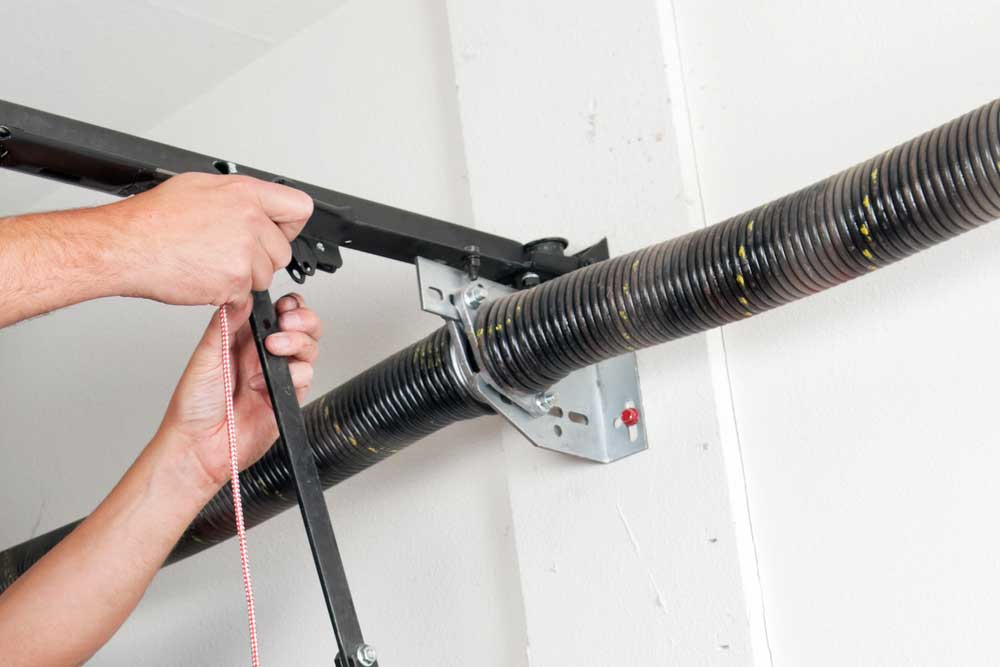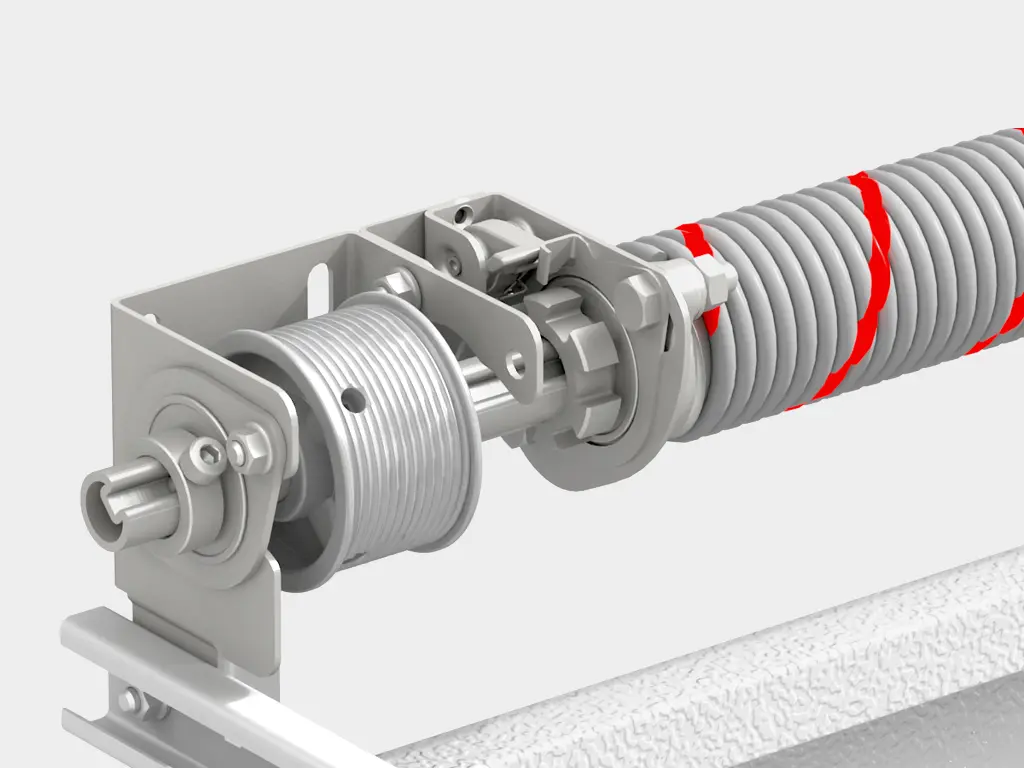Understanding How Garage Door Springs Work
Garage door springs are crucial components that ensure the smooth and reliable operation of your garage door. These springs balance the weight of the door, making it easy to open and close with minimal effort.
There are two main types of garage door springs, each with distinct functions and repair requirements: extension springs and torsion springs.

Garage Door Extension Spring
Extension springs are vital components in many garage door systems, designed to handle the heavy lifting required to operate the door smoothly. Attached to cables and mounted at each end of the door, these springs play a crucial role in managing the door's weight.
These springs cost between $20 and $60, making them affordable.
How Extension Springs Work
- Closing the Door: When the garage door is closing, the extension springs stretch and absorb most of the door's weight. This energy is stored in the springs as they elongate.
- Opening the Door: As the door begins to open, the stored energy is released from the springs, which helps to lift the door. The springs do the heavy lifting, allowing the door opener to function more efficiently since it doesn't need to bear the total weight of the door.
Safety and Maintenance
- Dual Springs: It is highly recommended that garage doors be equipped with two extension springs. Two springs ensure that if one spring breaks due to excessive strain or wear, the other can still support the door and prevent it from crashing down. This setup enhances safety and prevents potential damage or accidents.
- Containment Systems: Modern garage doors often include containment systems designed to prevent parts from scattering during a spring failure. These systems play a crucial role in containing broken spring fragments, significantly reducing the risk of injury and damage and thereby enhancing the safety of the garage door.
Garage Door Torsion Spring
How Torsion Springs Work
- Operation: Like extension springs, torsion springs store and release energy to help lift and lower the garage door. When the door is closing, the springs twist and store energy. As the door opens, this stored energy is released, raising the door with minimal effort.
- Strength: Torsion springs are generally more robust and durable than extension springs. They are designed to handle the entire door weight with a single spring, making them suitable for heavier doors and providing a smoother operation.
Key Features
- Cost Considerations: Torsion springs are generally more expensive than extension springs, with costs ranging from $40 to $140. This higher cost is due to their strength and the complexity of their installation and maintenance. Despite the price, their longevity and reliability make them a valuable investment for many homeowners.
- Single Spring Sufficiency: Unlike extension springs, a single torsion spring is typically sufficient to support the garage door's weight. However, some systems use two torsion springs for added balance and durability, particularly in heavy-duty applications.

Make Your Spring Effective for Use
Regular maintenance is essential to keeping your garage door springs functioning optimally. Proper care helps prevent issues and extends the springs' lifespan.
Maintenance Tips
- Regular Inspections: Inspect your garage door springs for signs of wear, damage, or rust. Early detection of problems can prevent more severe issues and reduce the risk of harm to other garage door system components.
- Prompt Repairs: If you notice any damage or defects, such as a snapped spring or uneven door movement, it's crucial to address these issues immediately. Delaying repairs can lead to more severe problems, such as uneven door lifting, where one side drags behind the other, potentially causing further damage.
- Rust and Corrosion: Springs exposed to moisture can develop rust, compromising their effectiveness and longevity. If you find rusty springs, replace them with new, rust-resistant springs to ensure smooth operation and avoid potential hazards.
If you call a handyman, the cost of a preventive inspection will be about $50, if maintenance or additional work is needed, the total cost will be $50-$250.
With this kind of care, you will prolong the overall service life. If such a need arises, take advantage of our garage door spring replacement or garage door spring adjustment services.
Choosing the Right Springs
- Match Springs to Door Weight: Each garage door requires a specific type of spring based on weight and size. Heavier doors necessitate longer and stronger springs, while lighter doors need appropriately sized springs to function correctly. Using the correct spring type ensures balanced and efficient operation.
- Professional Guidance: We provide high-quality garage door springs and expert advice on their operation and maintenance. Our Abell Garage Door team is here to help you make the best choice for your garage door system, whether you need torsion or extension springs.
Contact us today at (778) 715-6868 to ensure your springs are in top condition and your garage door operates smoothly. When emergency garage door repairs are needed, we are on call 24 hours a day, 7 days a week.
You might also be interested in our article How Much Does a Good Garage Door Cost?

